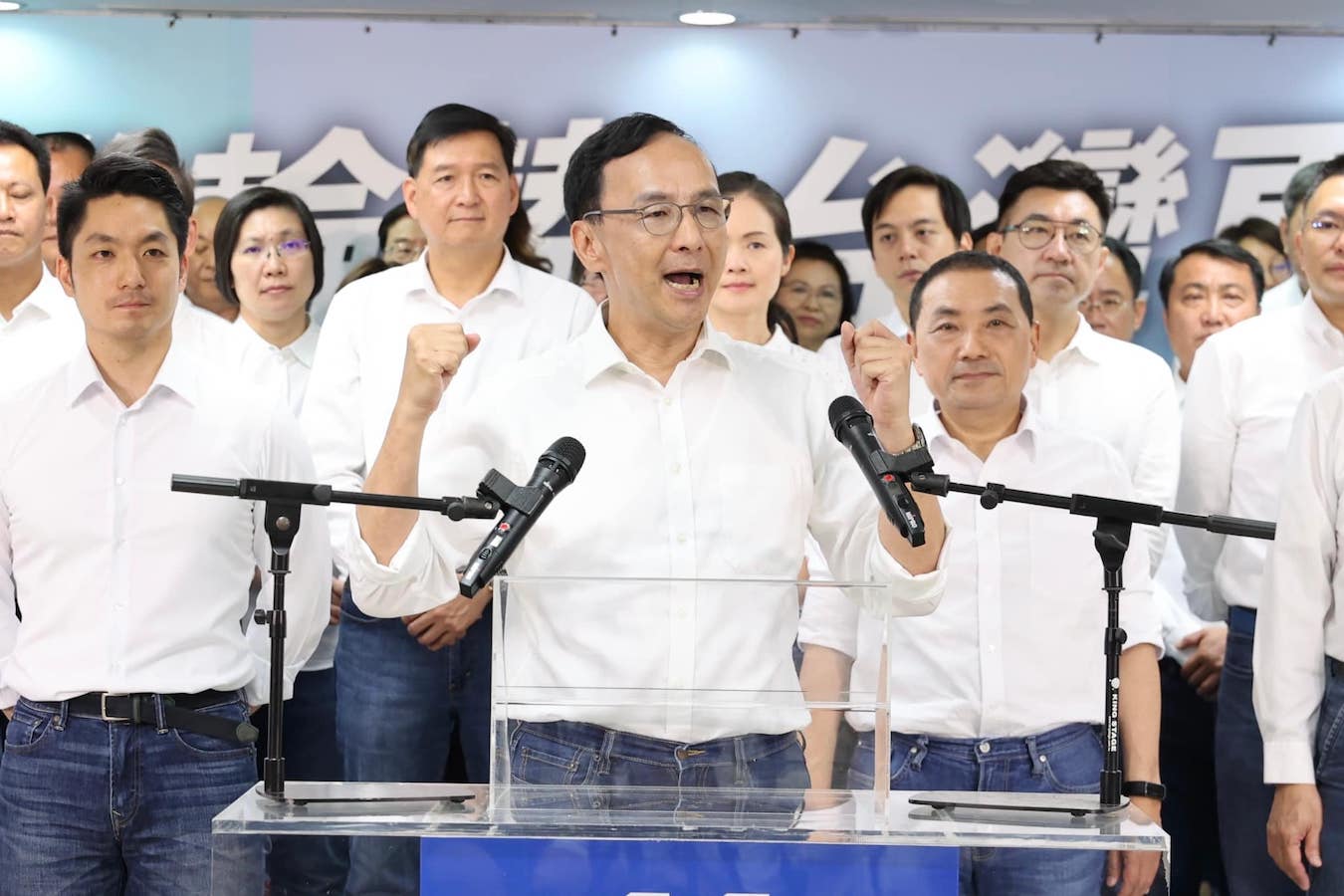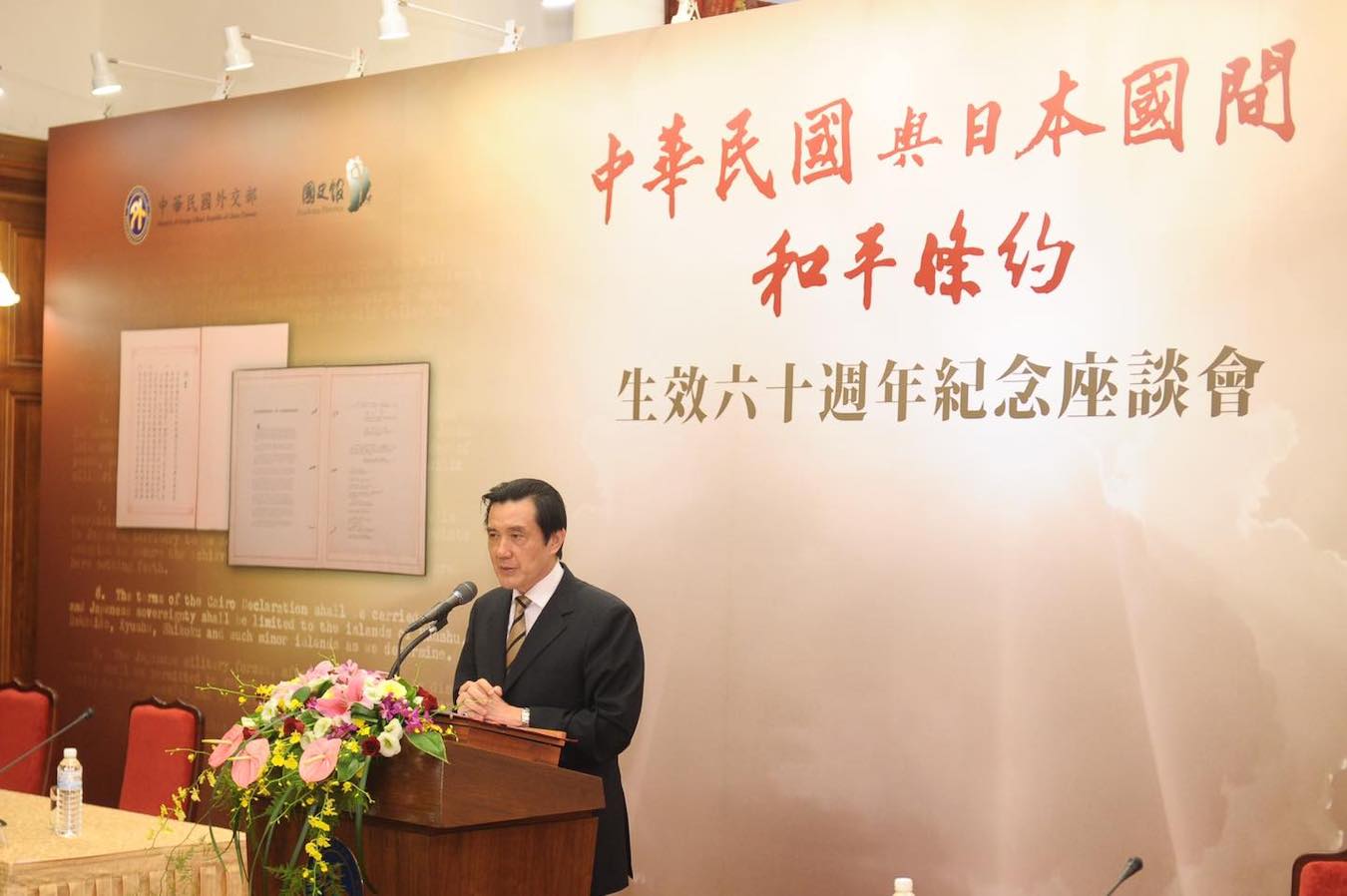by Brian Hioe
語言:
English
Photo Credit: Hou You-yi/Facebook
THE POLITICAL NARRATIVES that the KMT will lean into for the next election is increasingly clear, as the KMT seeks to frame the DPP as a warmonger seeking conflict with China, while positioning itself as a party of peace. That is, the KMT seeks to frame the DPP as provoking China into hostilities by seeking Taiwanese independence.
This is an ironic narrative, seeing as the KMT historically sought to military reconquer the Chinese mainland and oust the CCP. But times have changed and now the KMT seeks rapprochement with the CCP.
To this extent, the KMT was historically able to maintain political power in Taiwan because it was backed externally by the US, in the interests of opposing the CCP. Now, the KMT has switched its external backer to the CCP. It proves further ironic, then, that the KMT has also leaned into US-skeptic narratives when it was historically backed by the US, and recently claimed when current chair Eric Chu took office that the KMT would be pivoting toward the US to rebrand its pro-China image.
 KMT chair Eric Chu (center) and presidential candidate Hou You-yi (center-right). Photo credit: KMT/Facebook
KMT chair Eric Chu (center) and presidential candidate Hou You-yi (center-right). Photo credit: KMT/Facebook
In particular, the KMT historically ruled as a privileged elite in Taiwan during the authoritarian period, and it was able to maintain its grip on power in Taiwan because of external support from the US. With members of the KMT perceiving themselves as having lost the privileges and esteem they once enjoyed in past times, it is possible that they themselves are able to regain such privileges through external support from the CCP, to retake political power.
To counter the KMT narrative, the DPP has argued that it also hopes for peace, but that peace comes through preparedness rather than pursuing engagement with China in a means that undermines Taiwan’s democratic freedoms.
Nevertheless, the KMT’s framing is expected to be a strong one. The KMT’s probable framing for the next election also draws on global political discourse, With views of a potential Chinese invasion significantly shaped by international perceptions of the Russian invasion of Ukraine, the KMT has framed the war in Ukraine as a result of Ukraine becoming too close to the US. The suggestion, then, is that Taiwan could suffer the same fate through the DPP’s strengthening of ties between the US and Taiwan.
Potentially undermining the KMT narrative, however, is China itself. Namely, China may not directly coordinate with the KMT in a way that engenders the perception that KMT outreach to China could lessen tensions. People’s Liberation Army (PLA) military exercises still took place after former president Ma Ying-jeou’s historic visit to China, after all, as the first Taiwanese president to visit since the Chinese Civil War.
 Former president Ma Ying-jeou. Photo credit: Ma Ying-jeou/Facebook
Former president Ma Ying-jeou. Photo credit: Ma Ying-jeou/Facebook
It would have made more sense for China to cut back on military activity in response to the visit. However, it likely simply takes too much time and advance scheduling for China to drop planned military exercises in response to a trip such as Ma’s, while Ma’s trip could be arranged on comparatively short notice, with fewer logistical challenges.
To this extent, China reducing military activists in response to Ma’s visit would cut across the administrative dominion of multiple aspects of the state bureaucracy, ranging from the foreign policy establishment to the PLA. In this way, the inertia of the Chinese state apparatus makes it difficult for China to fine-tune messaging directed to Taiwan. This is probably a contributing factor as to why China often responds to Taiwan with heavy-handed threats, rather than a calculated combination of threats and incentives that could more strategically win over Taiwan.
The inertia of the massive Chinese state, then, as well as the lack of fine coordination with the KMT, could undermine the KMT’s narrative framing itself as the party of peace. And if China were to coordinate more closely with the KMT, the DPP would leverage upon this to attack the KMT as colluding with enemy forces.
Yet one notes that China could potentially not have faith in the KMT’s presidential candidate, Hou You-yi, either. Hou is historically a moderate, as a result of which he is distrusted in the KMT. China could distrust him for similar reasons and it may end up undermining his electoral odds if it tries to pressure him into conforming with stances unpopular with the public, such as the 1992 Consensus. For similar reasons, China sometimes prefers hardliners that echo its line in charge of the KMT, rather than moderate candidates who actually stand viable electoral odds in Taiwanese politics. If so, it is not impossible that China acts to undermine him, deliberately or unwittingly.

